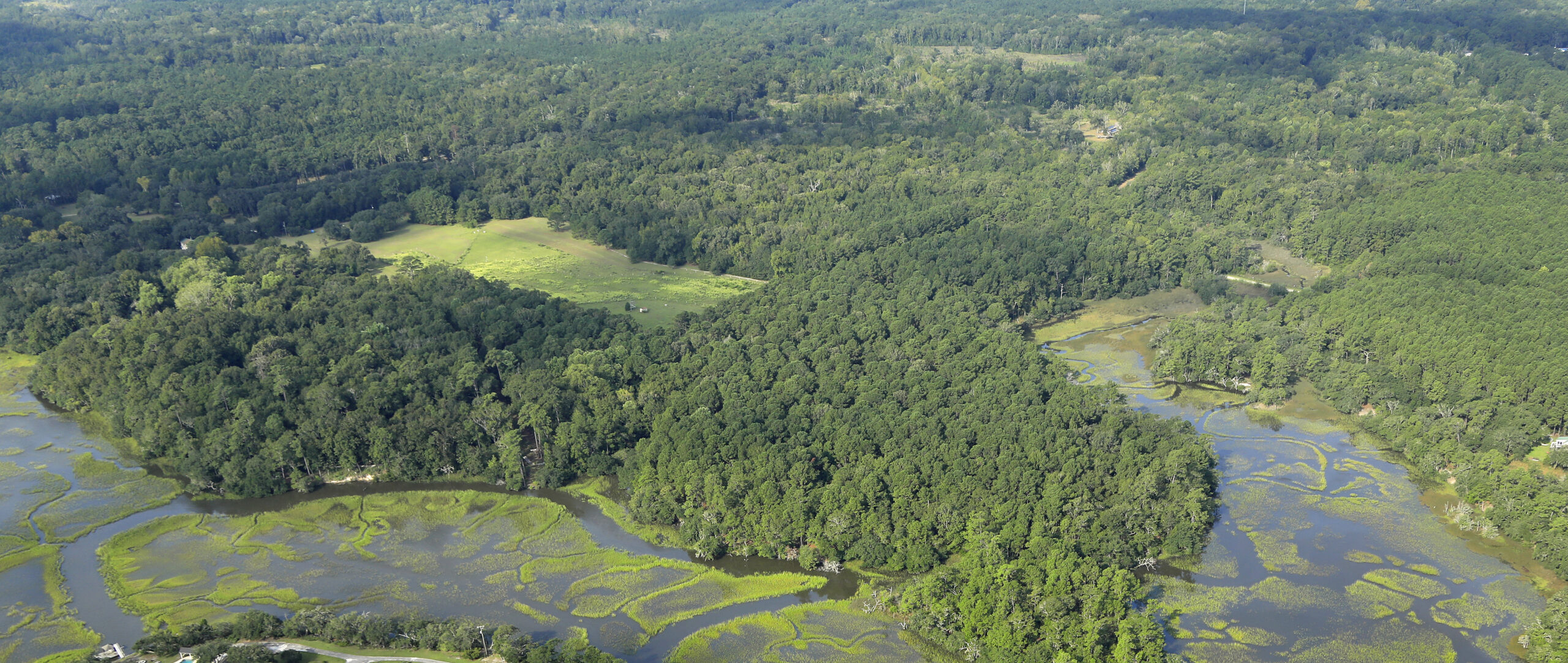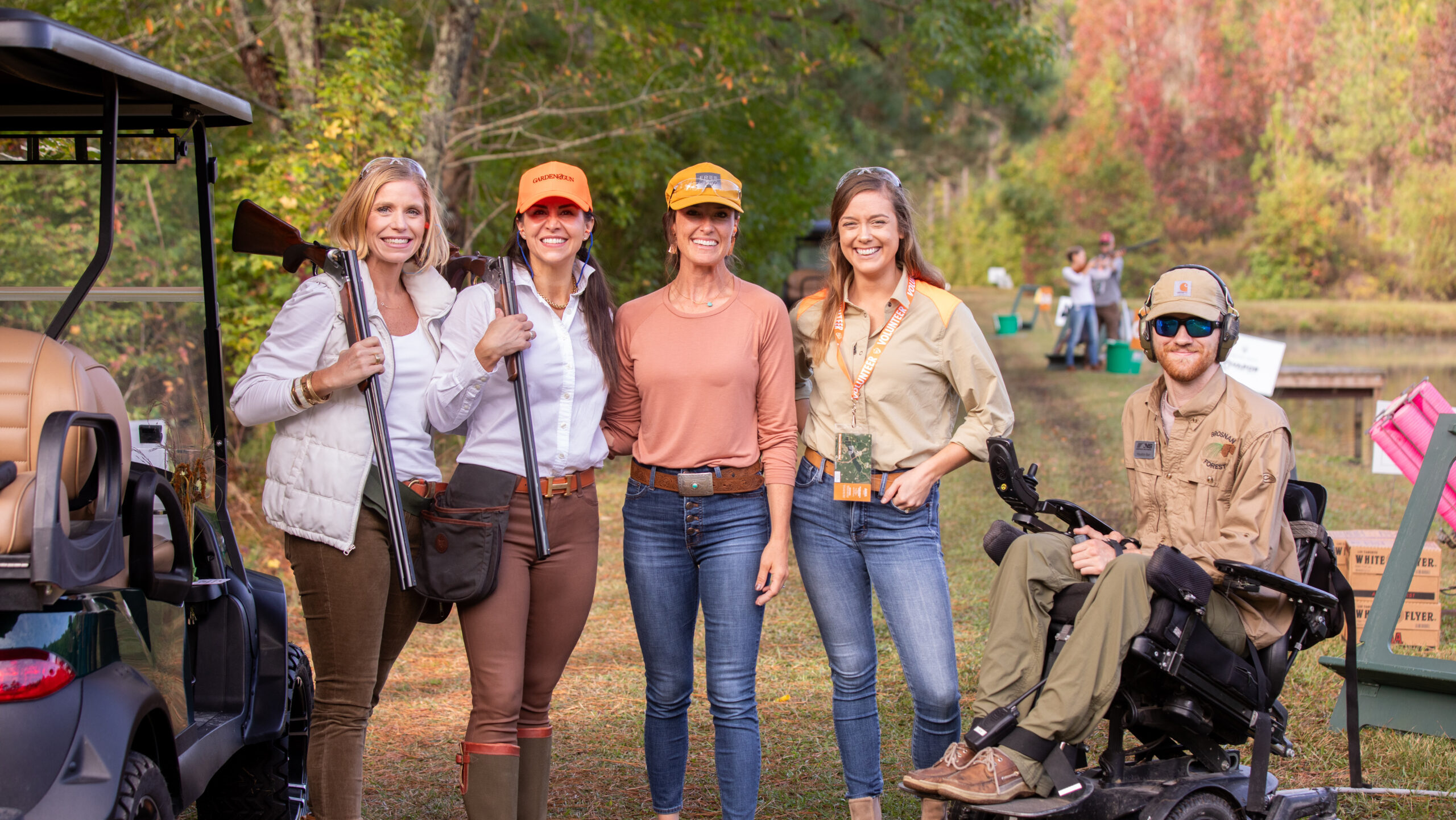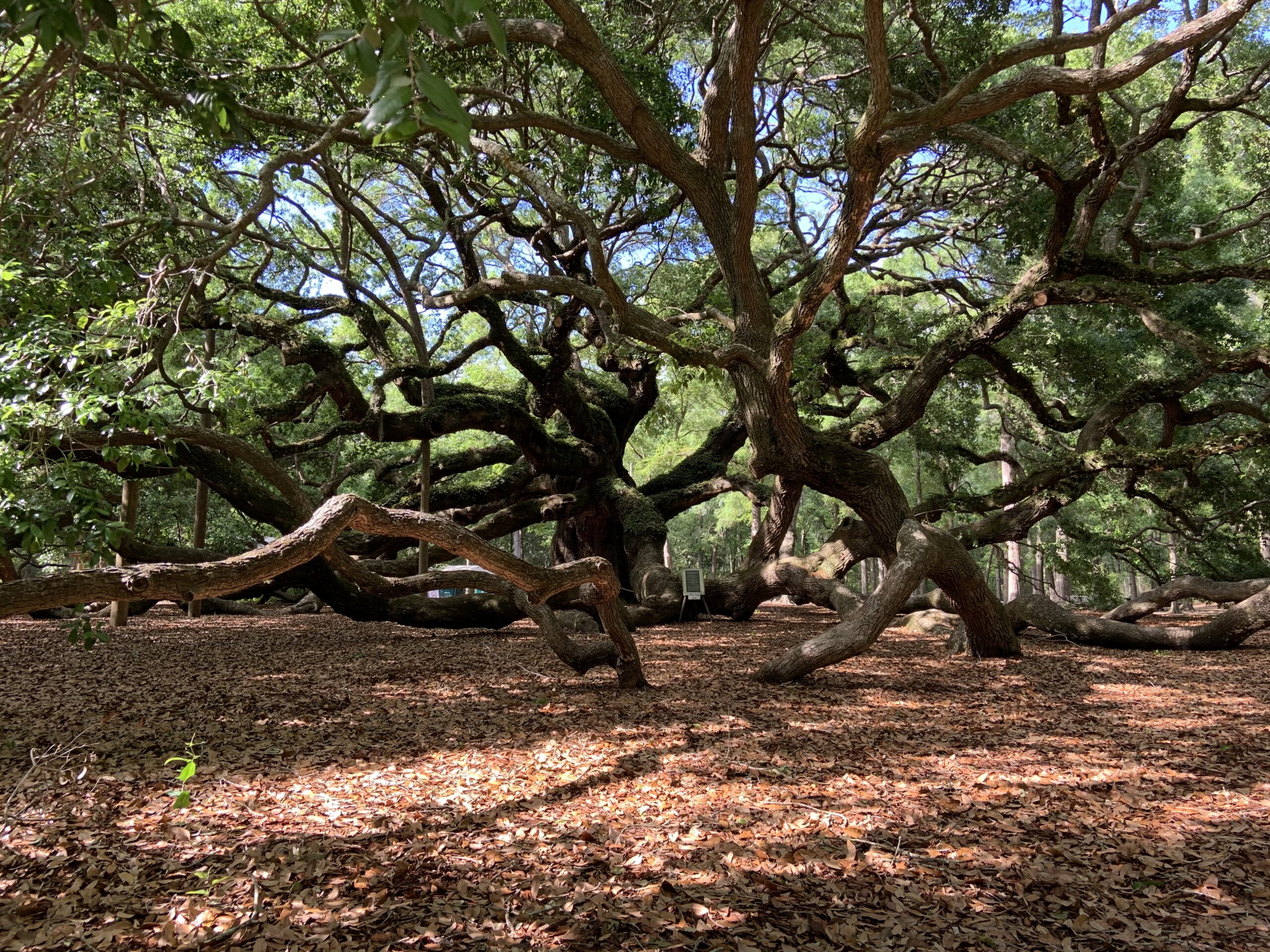
Dear Friends,
When I visit Land Trust properties, I like to think of the histories of these lands. Who lived there and why were they there? Was it of their own volition or another’s? So many generations and varying ways of living have sustained themselves on these Lowcountry lands for thousands of years. Surely I am not the first person to discover that hidden bluff, to place my hand on the draping branch of a live oak, to swat away a swarm of yellow flies, or to simply stop and marvel at the wonder of it all.
One of the things I like to think about most is what was grown on the land—how it sustained its inhabitants. Were there crops? Rows of the three sisters: corn, squash, and beans? Abundant tomatoes and peppers, okra, and sweet potatoes? Was the land ripe for foraging—filled with wild berries and mushrooms?
Food is an incredibly local and intimate thing, an innate celebration and reflection of its surroundings in a way most things are not. After working at an organic farm in college, I remember the delightful experimentation that was cooking after a shift. Though not a lot, what a bounty and luxury it was to have fresh vegetables! Okra, fairy eggplant, purple potatoes, microgreens… this access to fresh, high-quality, and local produce was not a privilege I took lightly. Food deserts—areas without access to grocery stores—are more prevalent than one would think, and the ability to grow your own food or have access to a farm share is incredibly important, especially during this time of increased insecurity.
While I no longer work on a farm, I find great joy in working at the Land Trust and conserving these lands: their stories, pasts, and potential. Many LLT conservation easement properties have community-supported agriculture programs (CSAs) and farm shares, some of which are listed below. I’ve also listed some, non-Land Trust affiliated, but quality, farms and community-supported groceries in the Charleston area.
Lowcountry Land Trust-protected working farms
Rooting Down Farms: The Twenty Bag
Other Great Local farms and food options
MUSC Sustainability & Recycling Resource Guide
Be well, stay grounded, and eat local!

Alison Cercy
Conservation Coordinator
Lowcountry Land Trust
Monday, July 27th: Conservation staff submitted applications to the SC Conservation Bank requesting funding for the protection of two properties: nearly 1,000 acres in Jasper County and approximately 440 acres in Georgetown County.
Tuesday, July 28th: The LLT Board of Trustees met for their first meeting of the new fiscal year. Topics discussed included COVID-19 scenario planning, budgeting, and upcoming conservation projects.
Wednesday, July 29th: Staff gathered for a virtual send-off to celebrate and thank Maggie Gardner, Stewardship Coordinator and faithful monitor of the Sea Island portfolio of protected properties. Maggie was accepted into the graduate program at University of Illinois at Urbana-Champaign to study sustainable and resilient infrastructure systems. Please join us in wishing her well and thanking her for her work with LLT!

Thursday, July 30th: Ashton Lamb, North Coast Project Manager, participated in a Sewee Longleaf Conservation Cooperative (SLCC) outreach planning meeting. The SLCC will be releasing multiple videos on native plants in longleaf pine systems. Stay tuned!
Friday, July 31st: Sam Seawell, Stewardship Associate, met with Dr. Jon Marcoux of Clemson University and Professor Frances Ford of CofC at Hyde Park, the LLT-owned property on the East Branch of the Cooper River. During this visit, they began to establish a study site for Professor Ford’s graduate course on conservation and cemeteries. Her class will potentially survey the two cemeteries at Hyde Park, one of which was used as a gravesite for the people enslaved at Hyde Park.

Dr. Jon Marcoux and Professor Frances Ford surveying Hyde Park.
OTHER NEWS
It’s Official: Today, the Great American Outdoors Act was signed into law, meaning the Land and Water Conservation Fund has full and permanent funding. Thank you to the SC Representatives and Senators for supporting this once-in-a-generation conservation legislation. And thank YOU for voicing your support and calling your legislators. The SC conservation community is primed and ready to continue efforts to preserve the incredible array of history, culture, scenery, wildlife habitat and recreational opportunity that makes our country so special, for all people.
We’re Hiring: LLT seeks a Communications Coordinator who will assist in telling the story of our organization, providing a consistent brand voice and messaging across all LLT communication channels, and ensuring the overall integrity of the LLT brand. Learn more about this opportunity and apply here.
Private Land Conservation: “A recent study found that protecting America’s undeveloped, privately held lands could push all of the country’s endangered mammals, birds, amphibians and reptiles past a crucial habitat threshold.” Read on in Anthropocene to learn how private land conservation fits into the strategy to protect endangered species.
[As we enter the long, hot days of summer, the President’s Log will feature a series of rotating guest writers, including LLT staff and board, as well as friends of Lowcountry Land Trust]





